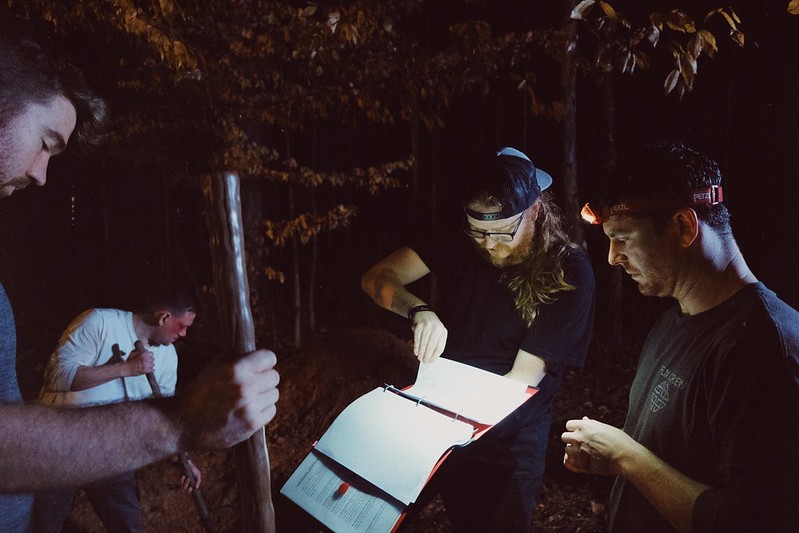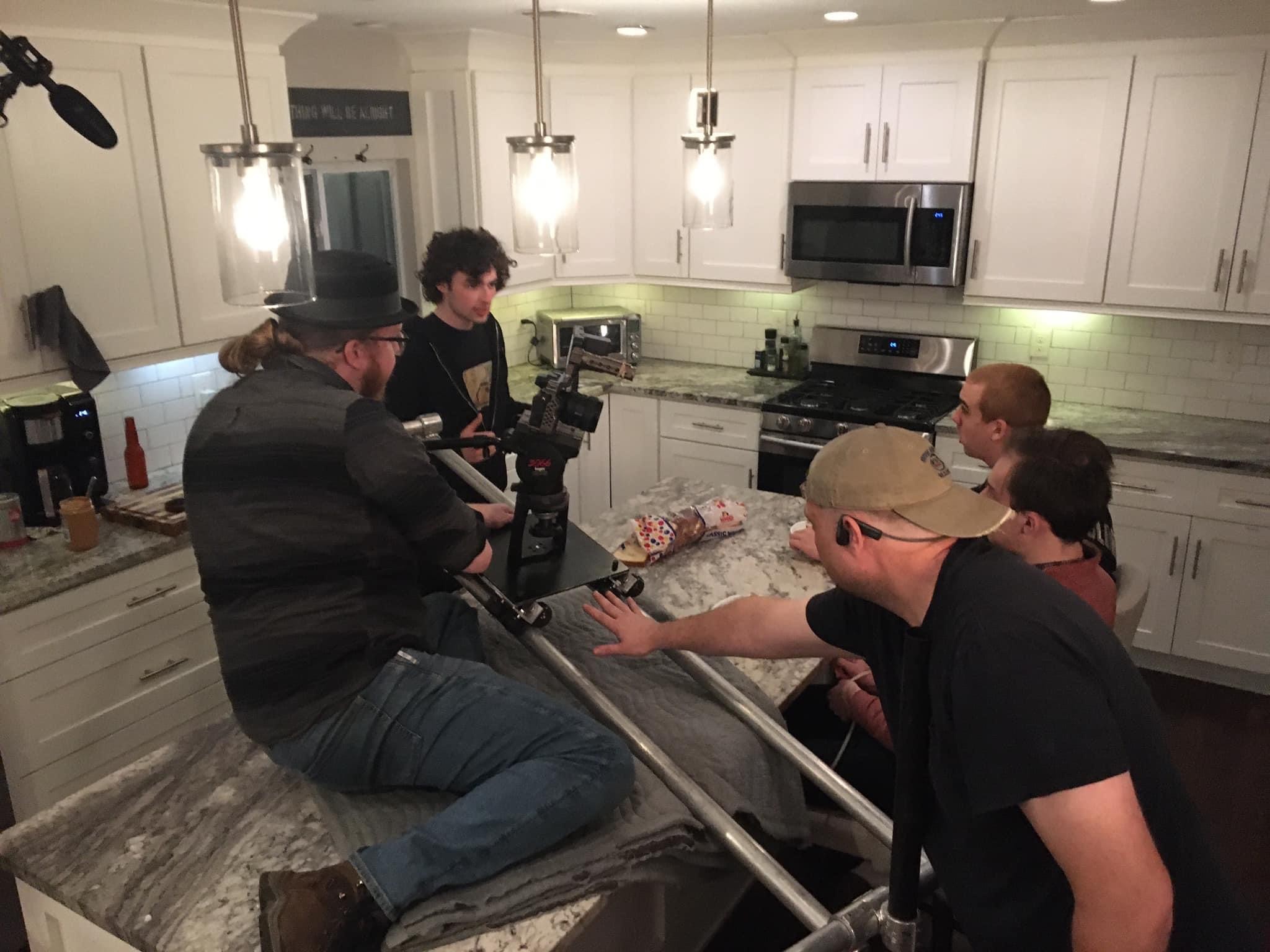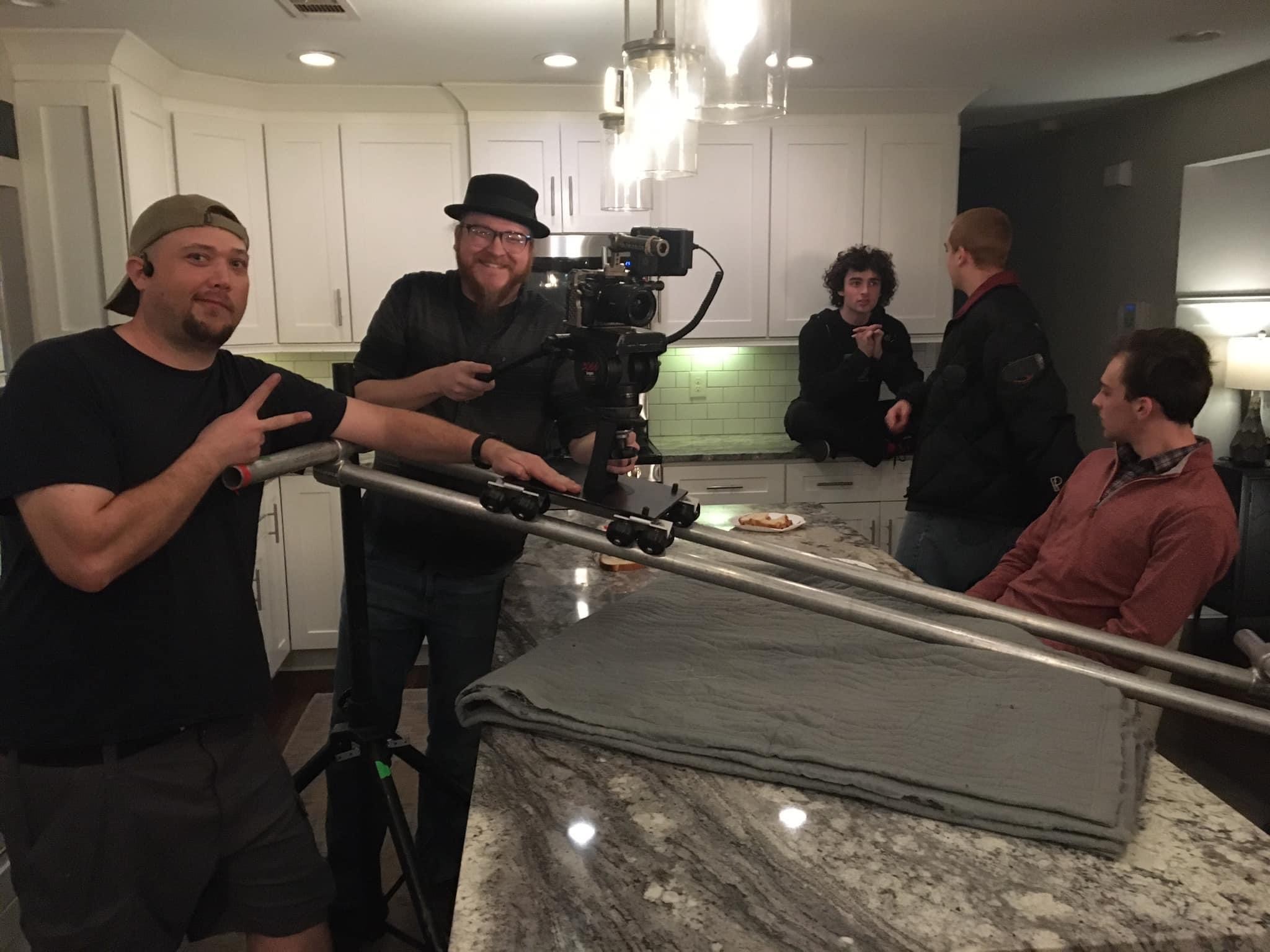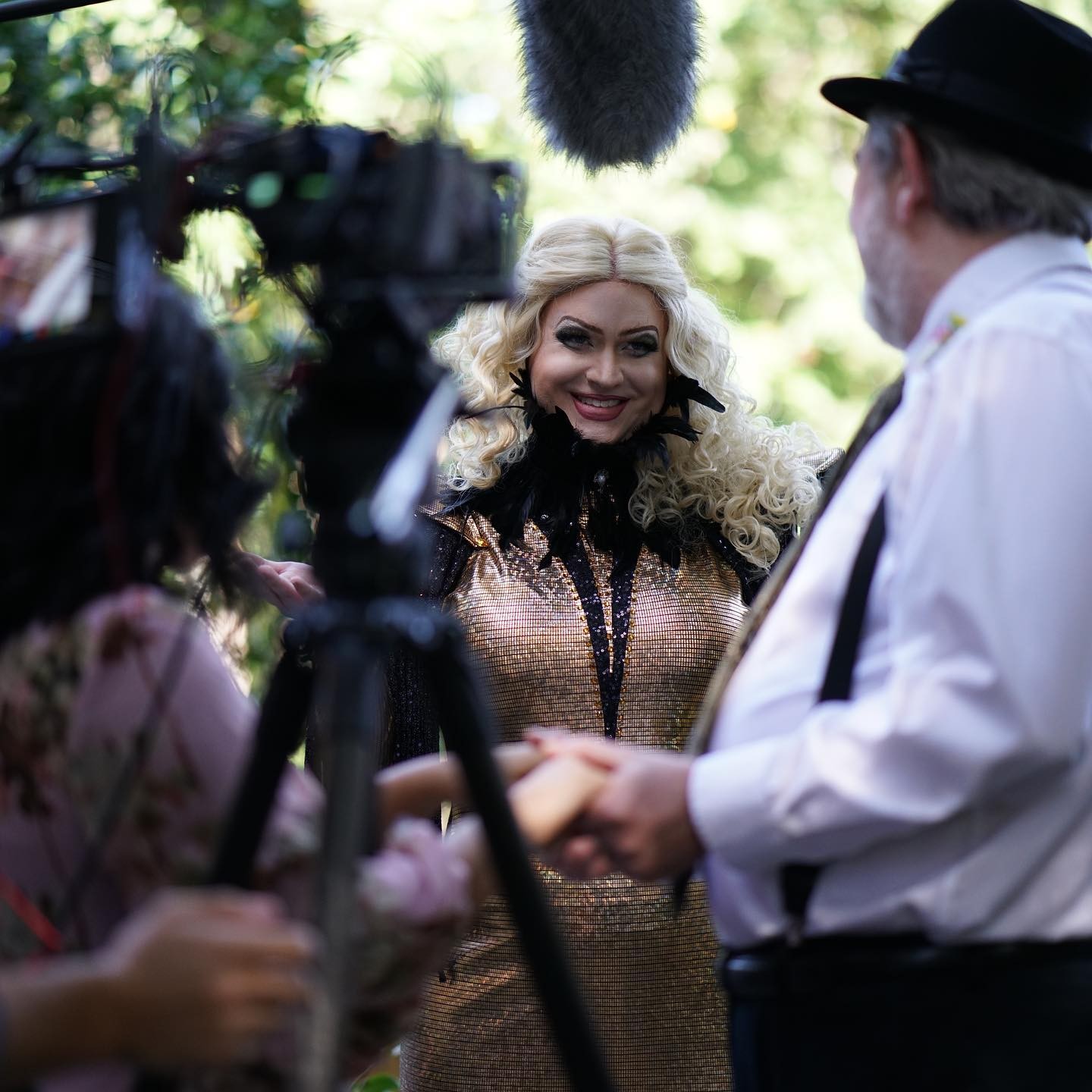We caught up with the brilliant and insightful Kenneth Forrester a few weeks ago and have shared our conversation below.
Kenneth, thanks for joining us, excited to have you contributing your stories and insights. Can you share a story about the kindest thing someone has done for you and why it mattered so much or was so meaningful to you?
There are a few people that could make this story but this one was the one that combined all of what they did to take me where I needed to be. I was given an ultimatum by a parent during their divorce when I was a late teen. I was told to “pick a parent.” I said no and that I loved both my parents. I was promptly kicked out of my house with nowhere to go. So I lived in my car, got down to 140 pounds, and pretended as best I could that I wasn’t homeless. I blamed myself. I was in a very dark place at one point. I was pondering and planning suicide. I drifted down the wrong side of the road a few times and even tried to get my hands on a gun. At some point, I was informed about an acting class at Callanwolde Fine Arts Center. The person who informed me said they would pay my way to go to this class. So I went. I could always end it another time. Well, it happened to be one of the most pivotal experiences of my life. I met Marty Barrett. An acting teacher and a pastor. I was able to express myself without consequence in a space where I felt safe, loved, cared for, challenged, and encouraged. Things I had not been given for many years. The real turning point was when Marty asked me to film something for him. I told him about my interest in film, which I’d had since I was little. He bought his wife the ring he couldn’t afford when he preposed years ago and wanted to re-prepose to her in the same spot where he had before. I was nervous beyond belief. This would be the first paid gig for a video I ever did. So I did it, sent it in, and waited. Both he and his wife called me on speaker. I was waiting for the criticism I was always used to. I was waiting for “this could be better” or “you should do something else with your time that makes more money.” I was waiting for, “you are not good enough.” Instead, what I got were two weeping adults. They were so happy with the product that they called me crying about it. Through those tears and my own, I knew I could do this. This pivotal moment in my life launched me into being the filmmaker I am today. I gained a father figure through Marty and went on to make many shorts, a feature film, and have soaked up 13 awards at festivals. Sometimes, a little encouragement can go a long way, especially when, for so long, you felt you had nothing to offer. As Marty put it recently, “Kenneth, you could make a pile of dog crap look like a painting!” I reluctantly took that as a compliment!


Great, appreciate you sharing that with us. Before we ask you to share more of your insights, can you take a moment to introduce yourself and how you got to where you are today to our readers.
My grandmother inspired me to imagine big. My mother helped me learn how to write those things down. My brother bought me my first cassette tape recorder. My grandfather got me my first camera. And Robert Rodriguez wrote a book on how to make movies with practically nothing! My filmmaking knowledge is 90% grass-roots self-taught. I made a feature film when everyone told me not to. That was my 3-year film school, for sure. It is a fantastic way to learn what to do and what not to do. I won my first award alongside my film partner and co-founder of our company, Mobocracy, in 2010. It was the first-place award at a community collage film festival. A college I didn’t even attend. I am very proud of that. We made many shorts together, Barna and I. Some that I wrote, some that he did, etc. Over all, we have won many awards at festivals, and we are still chugging along. I, along with my mentor, Marty Barrett, often team up and teach an acting class together. I believe everyone should act, even if they are not interested in acting full-time. Communication skills alone can help guide you so much in whatever field you are in. Another up-and-coming service we are looking to provide is to help independent and student filmmakers shine. We want to provide affordable gear and services for those just starting off in the industry. Big studios are taking over Atlanta, and though that is a good thing for many, the little guy tends to suffer. It makes it more expensive to get locations, rent gear, and hire professional crews to make your product look or sound good. We want to fill that gap. Mobocracy is readying ourselves to produce a “film boot camp” master class. We want to share with young and/or just-starting filmmakers how our process has worked for us and how to make a lot with a little. Those are a few things we are looking to provide the community of filmmakers in Atlanta and beyond. We offer the acting coaching and classes currently on our website and intend to add the other services soon as they are fleshed out.

In your view, what can society to do to best support artists, creatives and a thriving creative ecosystem?
In Atlanta, I believe we have a lot of “creatives” but not as many artists. Sure, you can learn all the principles on how to make a film or a product, but it takes an artist to work 16 hours for no pay on their film just because they can’t get the vision out of their head. If they don’t get this made, their soul will take a hit. An artist must paint, lest he die. Anyone can produce a product, but not everyone can produce a product with heart and soul embedded in the frames. If you can stop, walk away from your art, and be content, then I beg to argue that you are not an artist. You dabble in film. It is a hobby for you. Film artists have unique challenges coming our way. Art always gets targeted first, doesn’t it? We are the test dummies for all the dumb ideas governments and corporate interests have. With the AI scare and billion-dollar companies trying really hard to take away our pay, not to mention the human nuance of what we do, It is scary. For starters, we could buy more physical media. Streaming is wonderfully convenient, but we are losing our ability to own what we love. Ownership is being handed solely to the studios, record companies, etc. Go to festivals, meet filmmakers, and find out how to support them. Go to that concert and buy an album from a local band you like. Keep the network alive and out of the hands of the corporate monsters. We need to build more encouraging and uplifting ecosystems among artists on all levels. I am not a filmmaker because I want to be rich; I am a filmmaker because it is what I burn to do. I’m called to it like a siren in the deep, and it would take a lot more than tying me to the mast to get me to stop. The best thing people can do to support artists, especially filmmakers, is to stop setting the bar so impossibly high for them. Yes, it can be expensive sometimes, and yes, it’s a challenging medium, but you have to start somewhere. Hollywood is not the standard. Some of the best directors alive started off filming in their backyards with Super 8 cameras. Even if it encourages your kid to keep making stop-motion Lego videos, do it. Light that fire. Don’t let corporate greed and big-budget films discourage you. You have a vision; awesome! Now write, shoot, edit, and repeat!

Learning and unlearning are both critical parts of growth – can you share a story of a time when you had to unlearn a lesson?
Because of how I was raised and how tumultuous that was, I took on the “do it myself” attitude for many years. “If I don’t do it, it won’t get done right” mentality. Sometimes that is true, but in film, it hurts. Imagine ants building an ant hill. They are all getting dirt from all over when suddenly one ant steps up and says, “Stop, give me all the dirt! I know the best way to pack it in.” Well, that ant may be very talented in how to build an ant hill. He may even be the most exceptional member of the group. But, instead of finding constructive and encouraging ways to show the other ants, the hill starts to lose its form. It takes this single ant so long to build it that he has not been able to focus on the tunnels properly or where the food is stored, and in the end, it ends up failing. This is the challenge every up-and-coming filmmaker faces. We don’t have the resources other big companies have, so we wear a lot of hats. A few hats is okay, but your first step in making your vision come alive is not the script, the story, or what cool camera you can get your hands on. It’s finding a team that believes in you. A team that is on time, works toward the goals diligently, and helps take the pressure off of you as an artist. A team you can trust is worth far more than a $2000 lens. Find your team first. And side note: I would take a faithful friend willing to learn over a veteran film guy who has decided he has learned it all already. When Orson Wells was making Citizen Kane, he didn’t know what he was doing. It was his first picture. Needless to say, he was surprised to see Gregg Toland at his door one day, asking if he could be the cinematographer for his film. Greg was a big deal who made a lot of famous pictures before. When Wells asked him, “Why my film? Why me?” His answer was legendary. He said, “Because you don’t know what you can’t do.” In other words, he knew Wells would not be hindered by “the rules.”


Contact Info:
- Website: mobocracyfilms.com
- Instagram: @anarchistpreacher
- Facebook: Kenneth Forrester
- Youtube: https://youtube.com/@thegreatwallp?si=BZsnNqBgr31skhPR


